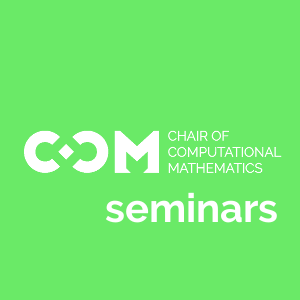U. Biccari, D. Ko, E. Zuazua Dynamics and control for multi-agent networked systems: a finite difference approach. Math. Models Methods Appl. Sci., Vol. 29, No. 4 (2019), pp. 755–790. DOI: 10.1142/S0218202519400050
Abstract: We analyze the dynamics of multi-agent collective behavior models and their control theoretical properties. We first derive a large population limit to parabolic diffusive equations. We also show that the non-local transport equations commonly derived as the mean-field limit, are subordinated to the first one. In other words, the solution of the non-local transport model can be obtained by a suitable averaging of the diffusive one. We then address the control problem in the linear setting, linking the multi-agent model with the spatial semi-discretization of parabolic equations. This allows us to use the existing techniques for parabolic control problems in the present setting and derive explicit estimates on the cost of controlling these systems as the number of agents tends to infinity. We obtain precise estimates on the time of control and the size of the controls needed to drive the system to consensus, depending on the size of the population considered. Our approach, inspired on the existing results for parabolic equations, possibly of fractional type, and in several space dimensions, shows that the formation of consensus may be understood in terms of the underlying diffusion process described by the heat semi-group. In this way, we are able to give precise estimates on the cost of controllability for these systems as the number of agents increases, both in what concerns the needed control time-horizon and the size of the controls.


